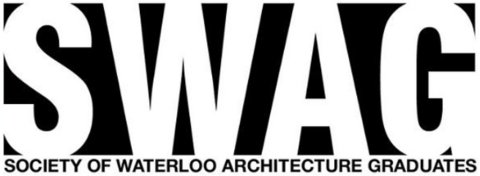The Society of Waterloo Architecture Graduates (SWAG) is the official representative body for all graduate architecture students, and serves by working with administration, holding seats on committees, and performing other administrative duties. In addition, the SWAG acts to stimulate social, intellectual, and political contact among its members.
The SWAG is a student run, not-for-profit organization whose membership consists of the graduate students of the School of Architecture, University of Waterloo. They actively promote and represent graduate student interests to the university administration and various levels of government. Their efforts focus on issues such as student funding, working conditions, academic regulations, and university services.
The SWAG offers financial support of up to $100 towards events organized by grad student organizations. The SWAG is also a partner in organizing the annual Graduate Student Research Conference at the main campus.
General email: pres.swag.uwsa@gmail.com
Our people
| ROLE | STUDENT(s) |
|---|---|
|
President |
LeiLei Zhao |
| Vice President |
Jan Hendrikse |
|
Treasurer |
Lindsey Chapman |
|
Secretary |
Athena Walker |
|
Event Coordinator |
Leanne Li |
|
Media Coordinator |
Kaitlyn Podawalski |
|
MA Representative |
Abdul Rafay Ali Aziz |
|
M1 Representative |
Kimia Safdarzadeh |
|
CASA Liaison |
Sammy Huang |
| TA/RA Rep |
Ricardo Espinoza |
|
GSA Councillor/Arch Rep |
Ali Zayrab |
|
WASA Liaison |
Sarah Soudki |
